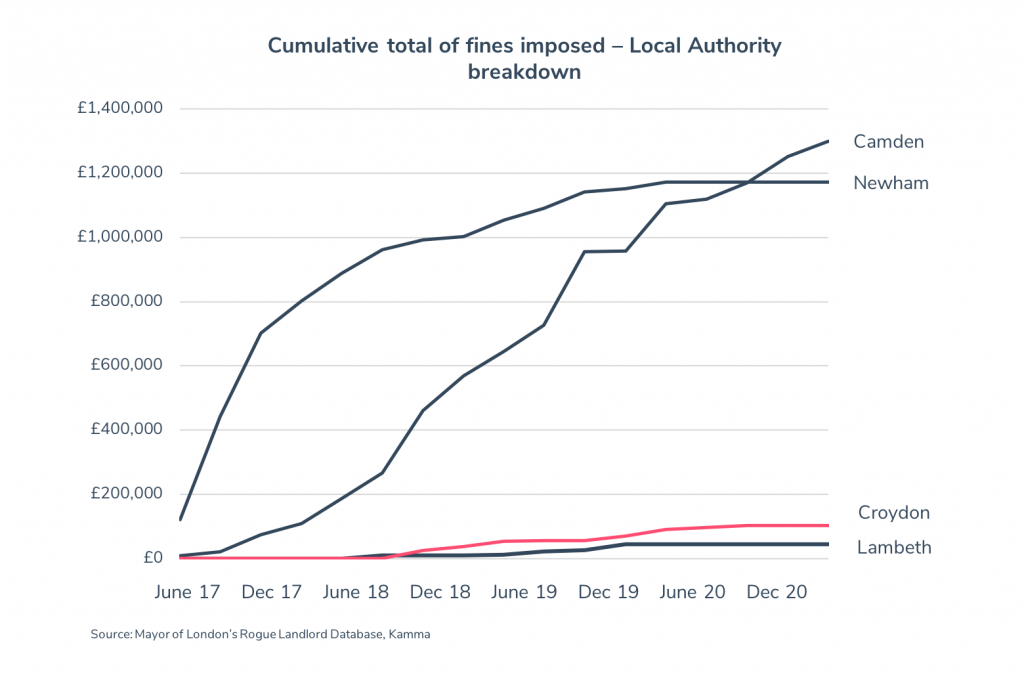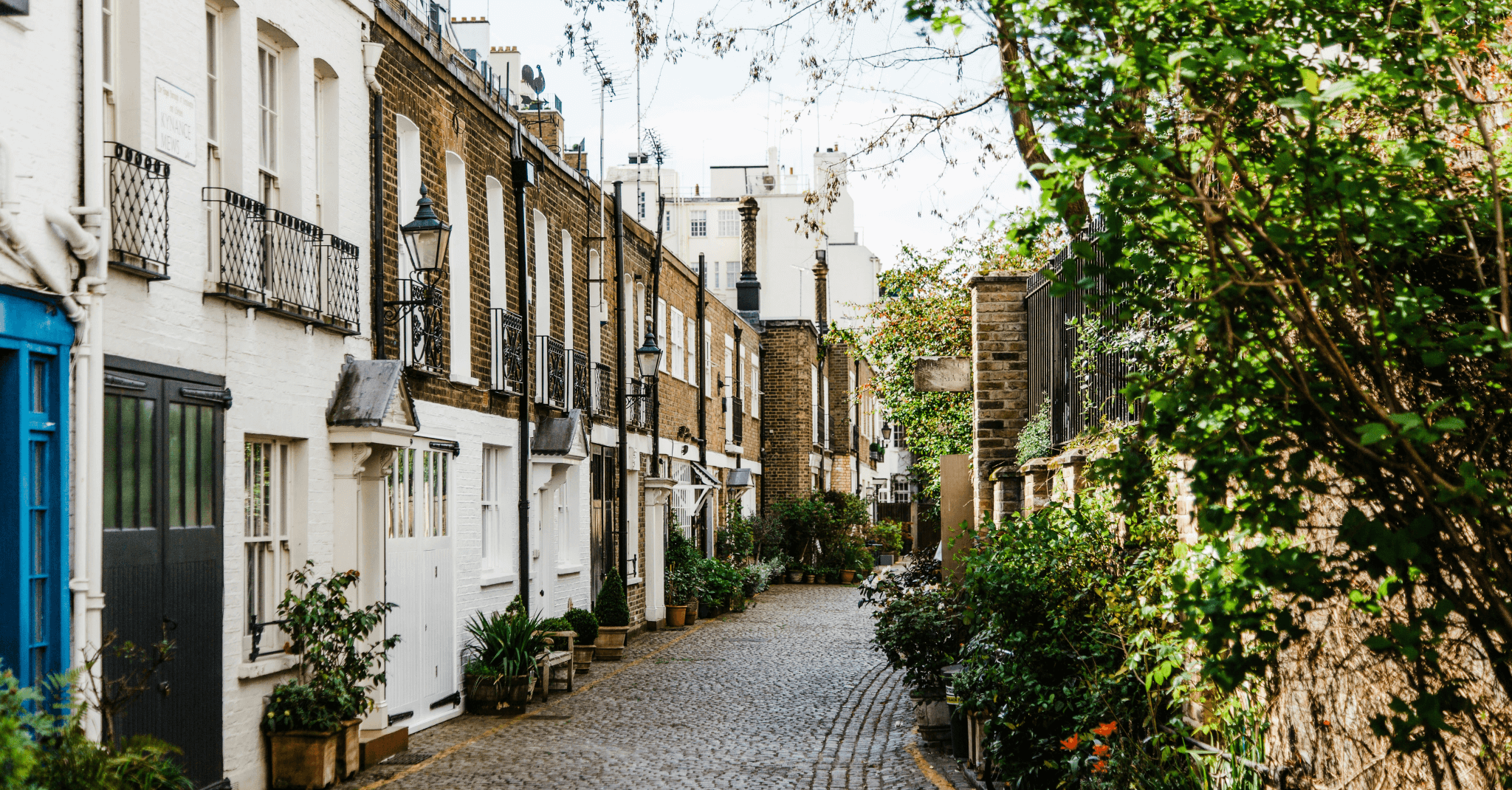- What we do What we do
- How we can help How we can help
- Insights Insights
- About About
- Support Support
- Book a Demo

Croydon scheme rejected: no licensing without proper enforcement?
The Croydon licensing scheme rejection sends a clear message to local authorities.
Earlier this month, Croydon Council was dealt a heavy blow by the Secretary of State of Housing, Robert Jenrick, after their application to extend a borough-wide Selective licensing was firmly rejected. The final decision came after a long wait for the council, whose cabinet approved the plans for the scheme all the way back in May 2020.
Croydon had originally introduced a borough-wide Selective scheme back in 2015 as part of their plan to “make Croydon a better place to rent”. With that scheme ending in September last year, councillors were hoping to continue their regulation over landlords for another 5 years. However, growing concerns around the borough’s implementation of that original scheme and a lack of clear strategy have now seemed to give Robert Jenrick reason to extinguish plans of an extension.
So, where exactly did Croydon go wrong? And are we likely to see more licensing proposals rejected by the Government as a result of mismanaged enforcement? We’ll be taking a look at the underlying issues, how Croydon’s enforcement stacks up against other London boroughs, as well as some of the ways that councils are hoping to step up their approach to policing property licensing.

Croydon’s licensing enforcement in jeopardy?
Like many other London-based local authorities, Croydon have been keen to introduce discretionary licensing schemes in the area and improve housing conditions for renters. However, over the tenure of its original Selective licensing scheme doubts were creeping in over the effectiveness of its implementation.
In 2017, Inside Croydon ran a story which highlighted some surprising statistics published by the borough. At that point in time, despite having collected an estimated £6 million in fees Croydon council had made just a single prosecution in the preceding 12 months, putting them in stark contrast to other councils with similar licensing schemes such as Nehwam. Additionally, council’s own figures in 2016-2017 showed that despite 3,473 inspections of private housing taking place, zero information on the number of Category 1 hazards was recorded by inspectors. This suggested a high level of inaccuracy and possible incompetency in the policing of the scheme.
Kamma’s own analysis of the Mayor of London’s Rogue Landlord and Agent database, highlights the discrepancy between council enforcement even further. We have tracked and aggregated this dataset since its inception to discover enforcement trends.

This graph, which illustrates the cumulative growth of fines of imposed by councils on landlords and agents since 2017, tells us that despite running discretionary schemes of similar size to Newham and Camden, Croydon council has been trailing far behind in terms of cases brought and fines.
Instead its enforcement numbers means it sits closer to a council like Lambeth who have never introduced a discretionary licensing scheme and instead only leverages the state-level Mandatory licensing scheme which applies solely to large HMOs.
In the rejection letter published by Jenrick’s office, it’s clear that failures in the implementation of the original licensing scheme were among the key reasons that drove the decision:
“In the council’s previous selective licensing scheme 2015-20, the council did not demonstrate strong outcomes or efficient delivery of the scheme. This evidence further persuades me not to grant a further scheme.”
Robert Jenrick, Secretary of State for Housing, Communities and Local Government
A more targeted approach to enforcement?
Newham council have often been cited as the poster child for property licensing. Indeed, they had a wide-spanning Selective scheme approved by the government back in 2018, after having demonstrated a proven track record for identifying and prosecuting landlords operating sub-standard rental accommodation.
Over the years they have develop a highly efficient, data-driven approach to licensing enforcement that many councils will look to replicate.
“With all the data that the council has at its fingertips, finding landlords with the wrong licence is relatively easy and often bears results. The intelligence that they gather can then also be used to tip-off their conventional environmental health enforcement, which acting alone can be painfully slow to get results.”
John Bibby, Policy Manager at Shelter
Newham’s success does set a precedent for other councils to follow. With the current government showing apparent scepticism over the effectiveness of council-wide Selective licensing (Liverpool and Redbridge both had schemes rejected), it is clear that enforcement numbers matter. If councils are to win over the support needed by central government, they must utilise every tool in armoury and place extra emphasis on identifying and prosecuting non-compliant landlords.
Contact us or book a demo now to understand how Kamma can solve property licensing for you.

How EPC data impacts property valuation for mortgage lenders
Reliable and up-to-date energy efficiency data is a must to ensure an accurate property valuation for UK mortgage lenders – here’s why.
Read more
New insights: how does EPC data impact affordability assessments?
Accurate energy performance data is a must to ensure mortgage lenders can accurately assess affordability and reduce risk – here’s why.
Read more
Kamma’s Response to CVE-2024-0394 (XZ Utils Backdoor)
Last week security researchers publicised a malicious back door in the XZ Utils library, a widely used suite of software that gives developers lossless compression and is commonly used for compressing software releases and Linux kernel images. The backdoor could, under certain circumstances be used to run unauthorised code via the encrypted SSH connection protocol. […]
Read more
Subscribe to the Kamma Newsletters
Regular news, information and insights from Kamma. No spam. Unsubscribe at any time.
Subscribing ...
Sorry, we really want to but we couldn't subscribe you due to missing or incorrect information; please update the information that's highlighted in red and try again.
Well this is awkward. Something went wrong on the internet between your browser and our newletter subscription service. Please let us know and we'll do our best to fix it for you.
Thanks for subscribing! Check your Inbox in a short while for a confirmation email to check it was really you that just subscribed. If you've already subscribed, we'll keep your subscription but you won't receive a confirmation email this time.
